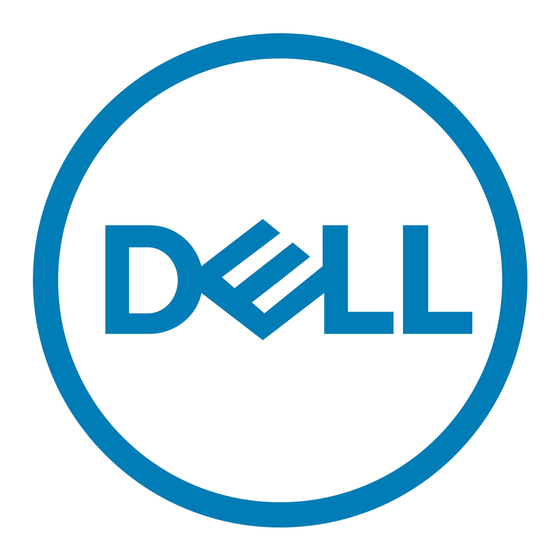Dell DX6000G Manuel d'installation et de configuration - Page 7
Parcourez en ligne ou téléchargez le pdf Manuel d'installation et de configuration pour {nom_de_la_catégorie} Dell DX6000G. Dell DX6000G 23 pages. Rack installation instructions — static rails
Également pour Dell DX6000G : Manuel de l'utilisateur (48 pages), Notes de mise à jour (7 pages), Installation du rack (2 pages), Installation du rack (2 pages)

# cns-admin
Note: Please make sure DX Storage is online and reachable prior to configuring the new name
space. cns-admin will prompt for the following values:
1.
Log facility. Enter the logging facility to use. The default value is syslog.
a.
Log filename. If the file logging facility was selected, enter the filename and location of
the logfile. By default the installer will use a /var/log/caringo/cns.log file. An additional file
in /var/log/caringo/cnsaudit.log will log the UUIDs for all successful DX Storage deletes for
audit purposes. With file logging, default log rotation for both files will be configured to keep
up to 8 log files, rotating weekly or at a max file size of 512 MB.
b.
Syslog facility. If the syslog option was selected, enter the facility to log to. The default
value is local4. Configuration of a remote syslog host must be done in the syslogd
configuration file.
2.
Log level. Enter the minimum level of log messages to record. The default value is info. Each
log level includes the following:
• info: errors, warnings and information messages like system start up and stop
• verbose: errors, warnings, and info messages plus high-level operational functions
• debug: errors, warnings, info and verbose messages plus lower level operational functions
• trace: all possible log messages
Note
Debug or trace logging are not recommended unless explicitly requested as part
of a support investigation due to the amount of disk space consumed. If debug
logging is required for any length of time, administrators must monitor space
availability carefully and are strongly encouraged to allocate a dedicated partition
for logging to protect other system services.
3.
CNS host: The location of the name space server for the name space you are configuring. The
default is localhost (127.0.0.1), which will configure a name space on the local server. Enter an
external IP address if using a remote server separate from the CFS server for the name space.
You may also enter a 0.0.0.0 address if the name space should be created locally but will need
to connect to CFS shares on both the local server and remote servers.
4.
DX Storage: use Zeroconf. This option allows you to specify whether or not Zeroconf should
be used to discover the list of nodes in the DX Storage cluster. The CNS server must be in the
same subnet with DX Storage in order to use Zeroconf. CFS 2.6 is compatible with DX Storage
versions 3.0.5 and later.
a.
If 'No' is selected:
Cluster primary node address: Enter the IP address or hostname for a DX Storage node
in the target cluster. The target cluster must be the same as the one configured for all CFS
mounts.
Primary node SCSP port: Enter the port the DX Storage node uses for SCSP
communications. The default is '80'.
Copyright © 2011 Caringo, Inc.
All rights reserved
4
Version 2.6
February 2011
